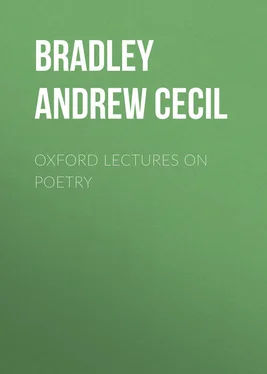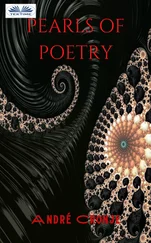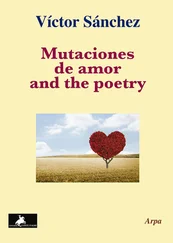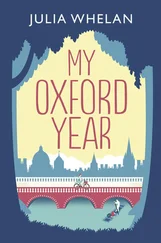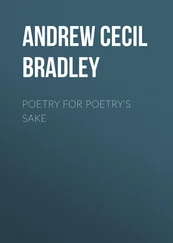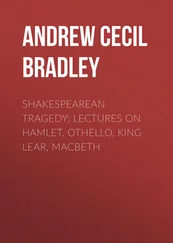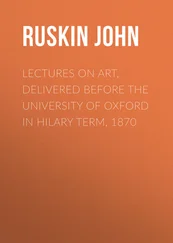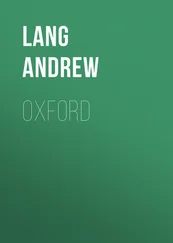Andrew Bradley - Oxford Lectures on Poetry
Здесь есть возможность читать онлайн «Andrew Bradley - Oxford Lectures on Poetry» — ознакомительный отрывок электронной книги совершенно бесплатно, а после прочтения отрывка купить полную версию. В некоторых случаях можно слушать аудио, скачать через торрент в формате fb2 и присутствует краткое содержание. ISBN: , Жанр: foreign_antique, foreign_prose, foreign_poetry, на английском языке. Описание произведения, (предисловие) а так же отзывы посетителей доступны на портале библиотеки ЛибКат.
- Название:Oxford Lectures on Poetry
- Автор:
- Жанр:
- Год:неизвестен
- ISBN:http://www.gutenberg.org/ebooks/36773
- Рейтинг книги:4 / 5. Голосов: 1
-
Избранное:Добавить в избранное
- Отзывы:
-
Ваша оценка:
- 80
- 1
- 2
- 3
- 4
- 5
Oxford Lectures on Poetry: краткое содержание, описание и аннотация
Предлагаем к чтению аннотацию, описание, краткое содержание или предисловие (зависит от того, что написал сам автор книги «Oxford Lectures on Poetry»). Если вы не нашли необходимую информацию о книге — напишите в комментариях, мы постараемся отыскать её.
Oxford Lectures on Poetry — читать онлайн ознакомительный отрывок
Ниже представлен текст книги, разбитый по страницам. Система сохранения места последней прочитанной страницы, позволяет с удобством читать онлайн бесплатно книгу «Oxford Lectures on Poetry», без необходимости каждый раз заново искать на чём Вы остановились. Поставьте закладку, и сможете в любой момент перейти на страницу, на которой закончили чтение.
Интервал:
Закладка:
Again, our formula may be accused of cutting poetry away from its connection with life. And this accusation raises so huge a problem that I must ask leave to be dogmatic as well as brief. There is plenty of connection between life and poetry, but it is, so to say, a connection underground. The two may be called different forms of the same thing: one of them having (in the usual sense) reality, but seldom fully satisfying imagination; while the other offers something which satisfies imagination but has not full ‘reality.’ They are parallel developments which nowhere meet, or, if I may use loosely a word which will be serviceable later, they are analogues. Hence we understand one by help of the other, and even, in a sense, care for one because of the other; but hence also, poetry neither is life, nor, strictly speaking, a copy of it. They differ not only because one has more mass and the other a more perfect shape, but because they have different kinds of existence. The one touches us as beings occupying a given position in space and time, and having feelings, desires, and purposes due to that position: it appeals to imagination, but appeals to much besides. What meets us in poetry has not a position in the same series of time and space, or, if it has or had such a position, it is taken apart from much that belonged to it there; 3 3 Note B.
and therefore it makes no direct appeal to those feelings, desires, and purposes, but speaks only to contemplative imagination – imagination the reverse of empty or emotionless, imagination saturated with the results of ‘real’ experience, but still contemplative. Thus, no doubt, one main reason why poetry has poetic value for us is that it presents to us in its own way something which we meet in another form in nature or life; and yet the test of its poetic value for us lies simply in the question whether it satisfies our imagination; the rest of us, our knowledge or conscience, for example, judging it only so far as they appear transmuted in our imagination. So also Shakespeare’s knowledge or his moral insight, Milton’s greatness of soul, Shelley’s ‘hate of hate’ and ‘love of love,’ and that desire to help men or make them happier which may have influenced a poet in hours of meditation – all these have, as such, no poetical worth: they have that worth only when, passing through the unity of the poet’s being, they reappear as qualities of imagination, and then are indeed mighty powers in the world of poetry.
I come to a third misapprehension, and so to my main subject. This formula, it is said, empties poetry of its meaning: it is really a doctrine of form for form’s sake. ‘It is of no consequence what a poet says, so long as he says the thing well. The what is poetically indifferent: it is the how that counts. Matter, subject, content, substance, determines nothing; there is no subject with which poetry may not deal: the form, the treatment, is everything. Nay, more: not only is the matter indifferent, but it is the secret of Art to “eradicate the matter by means of the form,”’ – phrases and statements like these meet us everywhere in current criticism of literature and the other arts. They are the stock-in-trade of writers who understand of them little more than the fact that somehow or other they are not ‘bourgeois.’ But we find them also seriously used by writers whom we must respect, whether they are anonymous or not; something like one or another of them might be quoted, for example, from Professor Saintsbury, the late R. A. M. Stevenson, Schiller, Goethe himself; and they are the watchwords of a school in the one country where Aesthetics has flourished. They come, as a rule, from men who either practise one of the arts, or, from study of it, are interested in its methods. The general reader – a being so general that I may say what I will of him – is outraged by them. He feels that he is being robbed of almost all that he cares for in a work of art. ‘You are asking me,’ he says, ‘to look at the Dresden Madonna as if it were a Persian rug. You are telling me that the poetic value of Hamlet lies solely in its style and versification, and that my interest in the man and his fate is only an intellectual or moral interest. You allege that, if I want to enjoy the poetry of Crossing the Bar , I must not mind what Tennyson says there, but must consider solely his way of saying it. But in that case I can care no more for a poem than I do for a set of nonsense verses; and I do not believe that the authors of Hamlet and Crossing the Bar regarded their poems thus.’
These antitheses of subject, matter, substance on the one side, form, treatment, handling on the other, are the field through which I especially want, in this lecture, to indicate a way. It is a field of battle; and the battle is waged for no trivial cause; but the cries of the combatants are terribly ambiguous. Those phrases of the so-called formalist may each mean five or six different things. Taken in one sense they seem to me chiefly true; taken as the general reader not unnaturally takes them, they seem to me false and mischievous. It would be absurd to pretend that I can end in a few minutes a controversy which concerns the ultimate nature of Art, and leads perhaps to problems not yet soluble; but we can at least draw some plain distinctions which, in this controversy, are too often confused.
In the first place, then, let us take ‘subject’ in one particular sense; let us understand by it that which we have in view when, looking at the title of an un-read poem, we say that the poet has chosen this or that for his subject. The subject, in this sense, so far as I can discover, is generally something, real or imaginary, as it exists in the minds of fairly cultivated people. The subject of Paradise Lost would be the story of the Fall as that story exists in the general imagination of a Bible-reading people. The subject of Shelley’s stanzas To a Skylark would be the ideas which arise in the mind of an educated person when, without knowing the poem, he hears the word ‘skylark’. If the title of a poem conveys little or nothing to us, the ‘subject’ appears to be either what we should gather by investigating the title in a dictionary or other book of the kind, or else such a brief suggestion as might be offered by a person who had read the poem, and who said, for example, that the subject of The Ancient Mariner was a sailor who killed an albatross and suffered for his deed.
Now the subject, in this sense (and I intend to use the word in no other), is not, as such, inside the poem, but outside it. The contents of the stanzas To a Skylark are not the ideas suggested by the work ‘skylark’ to the average man; they belong to Shelley just as much as the language does. The subject, therefore, is not the matter of the poem at all; and its opposite is not the form of the poem, but the whole poem. The subject is one thing; the poem, matter and form alike, another thing. This being so, it is surely obvious that the poetic value cannot lie in the subject, but lies entirely in its opposite, the poem. How can the subject determine the value when on one and the same subject poems may be written of all degrees of merit and demerit; or when a perfect poem may be composed on a subject so slight as a pet sparrow, and, if Macaulay may be trusted, a nearly worthless poem on a subject so stupendous as the omnipresence of the Deity? The ‘formalist’ is here perfectly right. Nor is he insisting on something unimportant. He is fighting against our tendency to take the work of art as a mere copy or reminder of something already in our heads, or at the best as a suggestion of some idea as little removed as possible from the familiar. The sightseer who promenades a picture-gallery, remarking that this portrait is so like his cousin, or that landscape the very image of his birthplace, or who, after satisfying himself that one picture is about Elijah, passes on rejoicing to discover the subject, and nothing but the subject, of the next – what is he but an extreme example of this tendency? Well, but the very same tendency vitiates much of our criticism, much criticism of Shakespeare, for example, which, with all its cleverness and partial truth, still shows that the critic never passed from his own mind into Shakespeare’s; and it may be traced even in so fine a critic as Coleridge, as when he dwarfs the sublime struggle of Hamlet into the image of his own unhappy weakness. Hazlitt by no means escaped its influence. Only the third of that great trio, Lamb, appears almost always to have rendered the conception of the composer.
Читать дальшеИнтервал:
Закладка:
Похожие книги на «Oxford Lectures on Poetry»
Представляем Вашему вниманию похожие книги на «Oxford Lectures on Poetry» списком для выбора. Мы отобрали схожую по названию и смыслу литературу в надежде предоставить читателям больше вариантов отыскать новые, интересные, ещё непрочитанные произведения.
Обсуждение, отзывы о книге «Oxford Lectures on Poetry» и просто собственные мнения читателей. Оставьте ваши комментарии, напишите, что Вы думаете о произведении, его смысле или главных героях. Укажите что конкретно понравилось, а что нет, и почему Вы так считаете.
